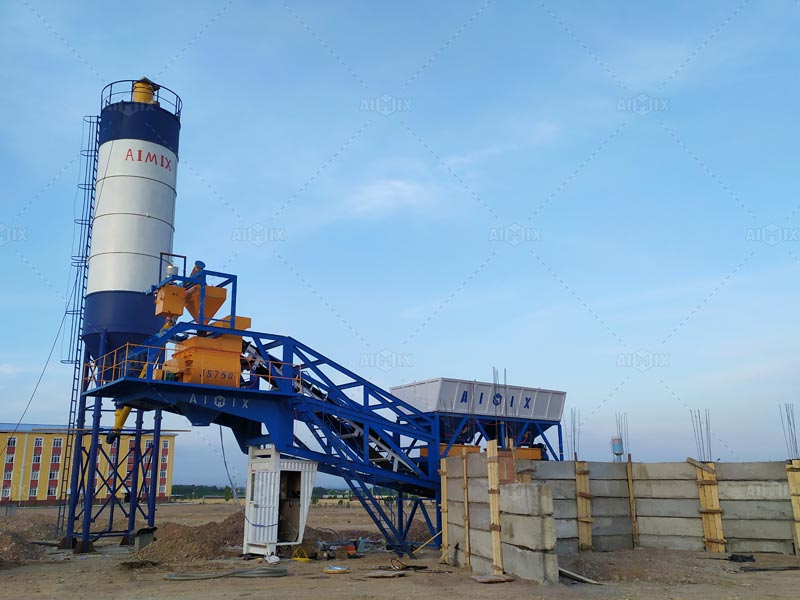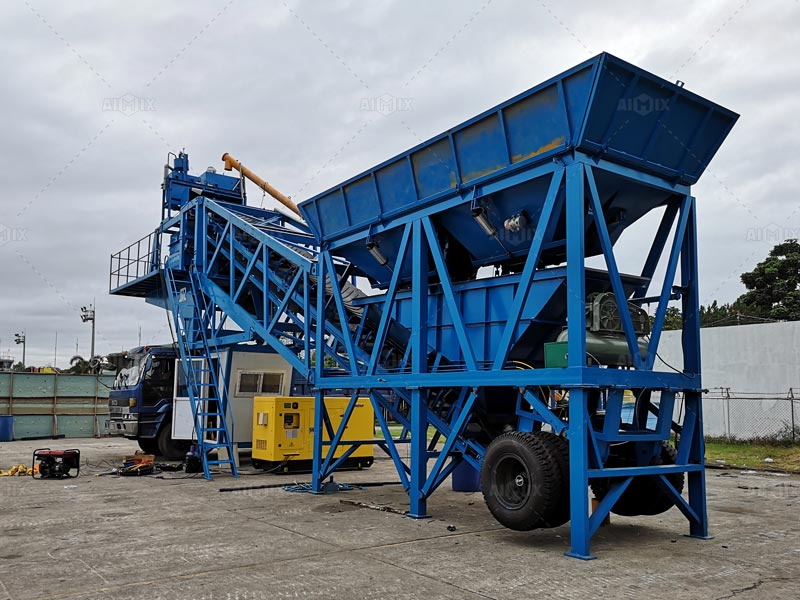Choosing the right type of concrete plant is essential for any construction project, whether it’s a small residential job or a large infrastructure project. Two common types of concrete plants are mobile and stationary. Both have their advantages, but deciding which one is right for you depends on several factors, such as the project size, location, and duration. In this article, we will explore the key differences between mobile concrete plants and stationary concrete plants, helping you make the best decision for your construction needs.
What Is a Mobile Concrete Plant?
A mobile concrete plant is a portable, easy-to-move batching plant designed for short-term projects or construction sites that frequently change locations. This type of mobile concrete plant(planta concreto móvil) is compact and can be quickly assembled and disassembled, making it highly efficient for projects where concrete production is required on-site. The mobility of these plants ensures that transportation costs are minimized, as the plant can be moved close to the job site.
Advantages of a Mobile Concrete Plant
- Portability: Mobile concrete plants are designed for ease of transport and setup, making them ideal for remote or temporary locations.
- Quick Installation: Mobile plants are typically faster to install compared to stationary plants, allowing you to start production sooner.
- Cost-Efficiency: Since the plant can be moved to the project site, it reduces transportation costs for ready-mix concrete.
- Flexibility: Perfect for short-term or small projects where a high volume of concrete isn’t needed for an extended period.

What Is a Stationary Concrete Plant?
A stationary concrete plant is a permanent fixture set up at a fixed location. These plants are typically used for large-scale, long-term projects or for the production of ready-mix concrete in a commercial setting. Stationary plants are equipped with high-capacity mixers and silos, allowing for continuous production of concrete for extended periods.
Advantages of a Stationary Concrete Plant
- High Capacity: Stationary plants can handle large volumes of concrete, making them ideal for large infrastructure projects.
- Consistency: These plants provide greater consistency in the quality of the concrete produced due to their advanced systems.
- Durability: Built to last, stationary plants can operate continuously for years, providing a reliable solution for large projects.
- Long-Term Efficiency: While the initial setup cost is higher, stationary plants are highly efficient over the long term for projects that require high volumes of concrete.
And hot to make ready-mix concrete with concrete plant? You can click this link for more information: https://aimixgrupo.com/planta-de-concreto-premezclado-en-venta/

Key Differences Between Mobile and Stationary Concrete Plants
Mobility
The most obvious difference between a mobile concrete plant and a stationary one is their mobility. Mobile plants are designed for ease of transport and installation, making them a great choice for projects that require frequent relocation. On the other hand, stationary plants are fixed in one location and are better suited for projects that demand continuous, long-term concrete production.
Production Capacity
Mobile concrete plants generally have a lower production capacity compared to stationary concrete plants. Mobile units are ideal for smaller projects or jobs that require concrete in limited quantities. Conversely, stationary plants are built for large-scale production, making them more suitable for commercial or industrial applications where a high volume of concrete is needed daily.
Cost Considerations
When considering the cost of a concrete plant for sale(venta de plantas de concreto), mobile plants tend to have a lower upfront cost due to their smaller size and easier installation. However, the operational costs could be higher in the long run if you’re working on a project that requires significant amounts of concrete over a long period. Stationary plants, although more expensive initially, provide better cost-efficiency for long-term or high-volume projects, reducing overall transportation and production costs.
Setup and Installation
Mobile concrete plants are designed to be quick and easy to set up. They can be installed and ready for use within a few days. This is ideal for time-sensitive projects. On the other hand, setting up a stationary concrete plant can take longer, as it requires a more permanent foundation and extensive installation. However, once in place, it can operate for years without the need for relocation.
Which One Is Right for You?
The choice between a mobile and stationary concrete plant of AIMIX Group Co., LTD depends on your project’s specific needs. If your project is short-term, in a remote location, or requires frequent relocation, a mobile concrete plant is likely the better choice. The flexibility and portability it offers make it ideal for such scenarios.
On the other hand, if you’re working on a long-term, large-scale project that requires a consistent and high volume of concrete, a stationary concrete plant would be more suitable. Despite the higher initial investment, the efficiency and capacity of a stationary plant make it cost-effective for such operations.
Conclusion
Both mobile and stationary concrete plants have their advantages, but the right choice depends on the unique demands of your project. Consider the project duration, location, and concrete volume needs before deciding on the type of plant to invest in. Whether you’re looking for a concrete plant for sale for a temporary job or a long-term infrastructure project, understanding the key differences between these two types will ensure you make the best decision for your construction goals.